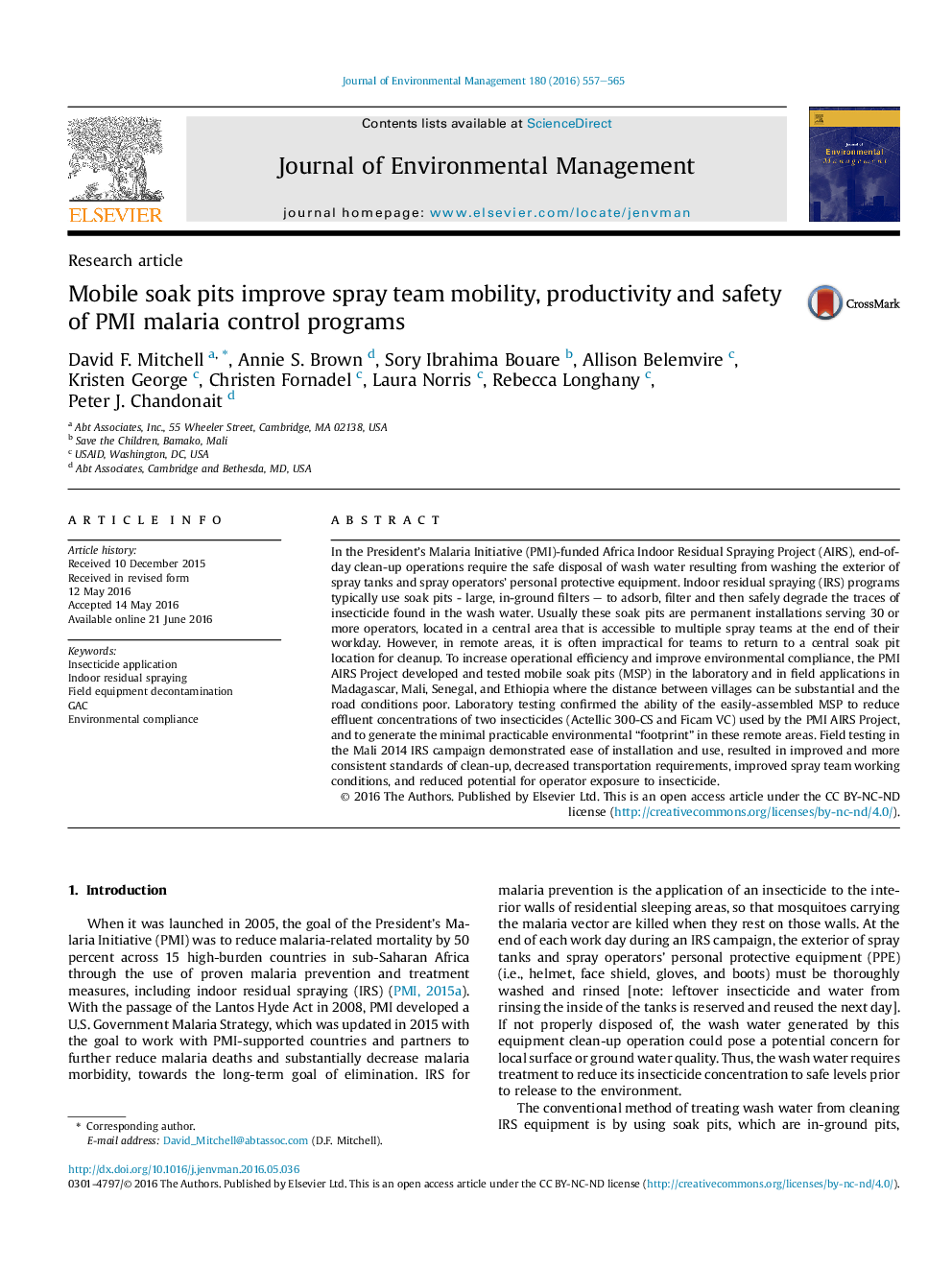| Article ID | Journal | Published Year | Pages | File Type |
|---|---|---|---|---|
| 7480311 | Journal of Environmental Management | 2016 | 9 Pages |
Abstract
In the President's Malaria Initiative (PMI)-funded Africa Indoor Residual Spraying Project (AIRS), end-of-day clean-up operations require the safe disposal of wash water resulting from washing the exterior of spray tanks and spray operators' personal protective equipment. Indoor residual spraying (IRS) programs typically use soak pits - large, in-ground filters - to adsorb, filter and then safely degrade the traces of insecticide found in the wash water. Usually these soak pits are permanent installations serving 30 or more operators, located in a central area that is accessible to multiple spray teams at the end of their workday. However, in remote areas, it is often impractical for teams to return to a central soak pit location for cleanup. To increase operational efficiency and improve environmental compliance, the PMI AIRS Project developed and tested mobile soak pits (MSP) in the laboratory and in field applications in Madagascar, Mali, Senegal, and Ethiopia where the distance between villages can be substantial and the road conditions poor. Laboratory testing confirmed the ability of the easily-assembled MSP to reduce effluent concentrations of two insecticides (Actellic 300-CS and Ficam VC) used by the PMI AIRS Project, and to generate the minimal practicable environmental “footprint” in these remote areas. Field testing in the Mali 2014 IRS campaign demonstrated ease of installation and use, resulted in improved and more consistent standards of clean-up, decreased transportation requirements, improved spray team working conditions, and reduced potential for operator exposure to insecticide.
Related Topics
Physical Sciences and Engineering
Energy
Renewable Energy, Sustainability and the Environment
Authors
David F. Mitchell, Annie S. Brown, Sory Ibrahima Bouare, Allison Belemvire, Kristen George, Christen Fornadel, Laura Norris, Rebecca Longhany, Peter J. Chandonait,
